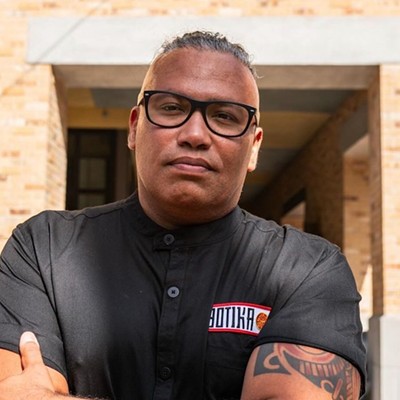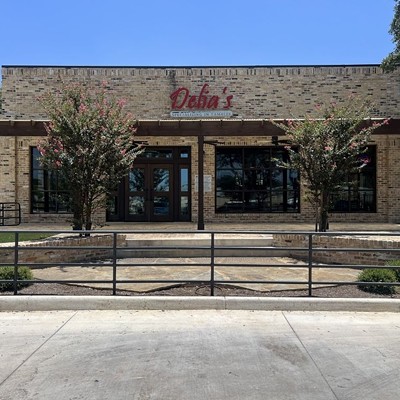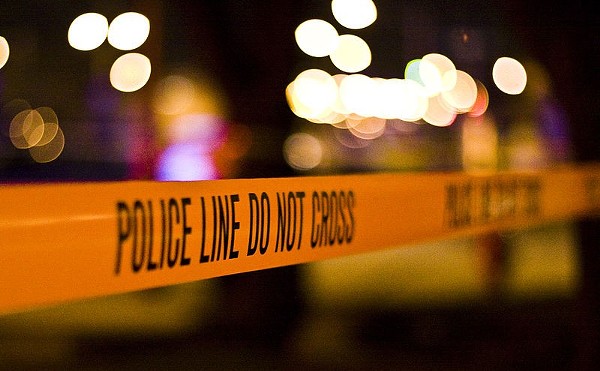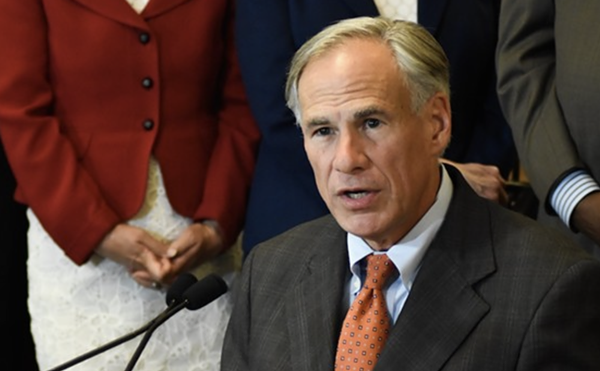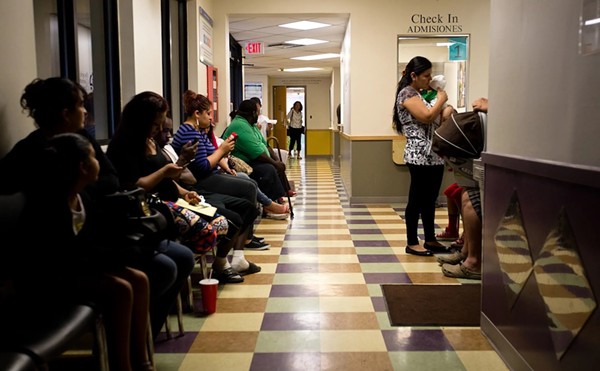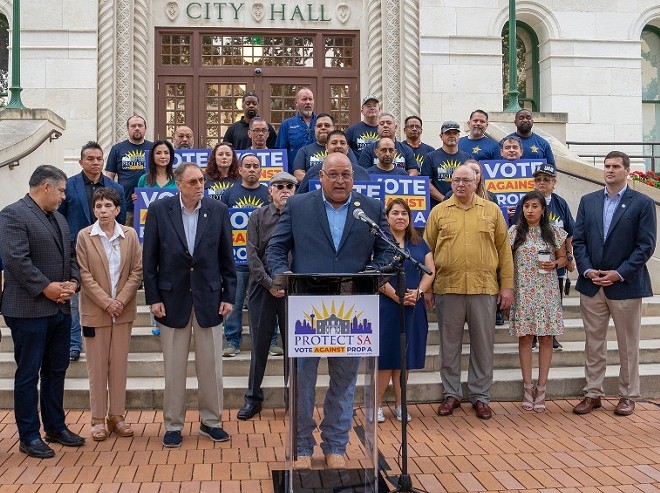
Editor's Note: Bad Takes is a column of opinion and analysis.
"We express the gravest concern for the explosive and dangerous condition inflamed by outside meddlers." — The Southern Manifesto, 1954
"Outside agitators are coming in to arouse our people to do acts they would not do otherwise." — Strom Thurman, 1968
"These outside activists have tricked voters in other cities with devastating consequences." — Protect SA, 2023
"Injustice anywhere is a threat to justice everywhere. Never again can we afford to live with the narrow, provincial 'outside agitator' idea." — Martin Luther King Jr, Letter From Birmingham Jail, 1963
By now, you've probably received frightening copaganda via your mailbox, TV or local paper paid for by Protect SA, the political action committee of San Antonio's powerful police union. The organization has amassed a war chest of more than $880,000 this year to scare San Antonians out of passing a morally urgent charter amendment which will appear on the May 6 ballot.
The term "outside agitators" has an unsavory historical legacy. As Freedom Riders struggled to register Black voters in the South, to pick but one example, those resistant to change deployed the inflammatory epithet to discredit courageous activists.
Yet San Antonio Police Officers Association President Danny Diaz had no qualms about resuscitating "outside agitator" rhetoric last month on the Express-News' Puro Politics podcast.
"During the 2020 riots, a lot of those individuals that stirred up that stuff were from out of town," he said.
That's a hell of a way to reductively dismiss the largest protest movement in US history, when tens of millions of Americans from all across the nation marched against systemic racism and police brutality in the wake of George Floyd's murder. Many endured pepper spray and rubber bullets for exercising their civic duty.
I would not want to live in a country where a person in police custody could be killed with impunity while nobody cared enough to hit the streets. And I am proud to say I do not live in such a country.
Yet bad faith critics have called the follow-on grassroots organizers who introduced Proposition A by gathering more than 38,000 signatures from registered Bexar County voters every insult but "uppity."
The revolting ads that Protect SA blew beaucoup cash on splash the words "Now they are coming for us" across the scene as footage depicts cities engulfed in flames. That's shameless fearmongering — with covertly racist undertones and an overtly racist provenance — and it's beneath the dignity of anyone who purports to care about protecting and serving the community. Martin Luther King Jr was assassinated 55 years ago this month while traveling to Memphis to back a strike by sanitation workers. Does that mean the civil rights leader lost his life being, according to the choice language of Protect SA, just another "outside radical activist."
What is the specter called Prop A haunting our fair city?
A key section states that "police officers shall not investigate, make arrests, or otherwise enforce any alleged criminal abortion." This scenario isn't hypothetical. Last April, the Starr County Sheriff's Office in Rio Grande City arrested 26-year-old Lizelle Herrera on the charge of murder by "self-induced abortion."
Just last month, Texas' extreme prohibition of abortion in almost all cases forced Samantha Casiano to give birth to a fetus missing half its brain. The child lived for all of four hours before dying in her father's arms. And since our state doesn't help pay for infant funerals, the parents had to raise money for the burial — all for a pregnancy that could have been safely ended months earlier.
More recently, a Texas judge revoked the Food and Drug Administration's approval of the abortion pill, mifepristone, and State Rep. Steve Toth introduced a bill to criminalize so much as providing information on how to obtain an abortion-inducing drug — a blatant infringement of the First Amendment.
Who will enforce these grisly and draconian laws? When asked that question on the Puro Politics podcast, Diaz's reply was far from reassuring.
"We're so understaffed, there's no way we can sit at a location to wait for a doctor to, you know, have a procedure and then we arrest them," he said.
Sorry, the only guarantee we have that the San Antonio Police Department won't arrest doctors outside of abortion clinics is that the department is "understaffed"? Diaz went on to recommend putting another 1,000 cops on the beat. That about sums up, in a single soundbite, the vital importance of enshrining reproductive rights in the city charter as soon as possible.
SA Protect's graphic riot imagery notwithstanding, setting a cop car or courthouse ablaze is a felony, for the record. Such crimes aren't in the same ballpark, the same league or even the same sport as the misdemeanors covered by the 2019 cite-and-release program which Prop A seeks to codify.
Yet the SA Protect website portends that sex crimes would also be treated with a slap on the wrist. "Sexual predators caught flashing children or peeping into your windows would be treated the same as speeding tickets," the site claims.
That's egregiously false. Indecent exposure involving a minor is already a state jail felony, therefore not covered by Prop A, and voyeurism is a Class C misdemeanor which — approve or disapprove — isn't an arrestable offense at present.
How can we trust the police when their mouthpieces flagrantly lie to the public without remorse?
If SAPD has already banned chokeholds and no-knock warrants in their manual, what explains the reluctance to write those protections in law? If the department welcomes oversight, why rile under the appointment of a Justice Director who would issue impact reports and keep a dialogue going with community stakeholders?
We sure could have used such a watchdog in the room when city council last August gifted SAPD a $400,000 armored tactical vehicle, for instance. Though Diaz rightly affirmed San Antonio's love for police officers, why do cops seem intent on being outfitted like an occupying army?
Sincere advocates for and against Prop A admit that what little accountability San Antonio has achieved in keeping problem cops off the force was a consequence of the post-Floyd reset. Nearly half the electorate voted to strip the police union of collective bargaining during the May 2021 election. That initiative, called Proposition B, failed just 48.8% to 51%.
"The fact that we were even able to focus on discipline and limit the role of an arbitrator so our police chief's decisions [are] upheld on firings — that came from Prop B, that came from George Floyd," Ananda Tomas, head of Act 4 SA, said on the same podcast Diaz visited a week prior. Tomas was driving force behind Prop B then and behind Prop A now.
To her point, measures initially presumed to be aspirational can extract material concessions and shape policy in a lasting manner.
Were the unfounded smears hurled at Prop A confined to those who insist on an officer's "discretion" to search and imprison someone for possessing cannabis — a smokable plant — that would be bad enough. But supposed allies of reform have suffered spinal problems as well.
During a recent KSAT News interview, Mayor Ron Nirenberg came out against Prop A, lamenting a "lack of consequences for the victims of low-level crime." But let's be real: when a cop issues an order to appear in court, that's not a referral to Judge Judy, and the failure to show up triggers a bench warrant for one's arrest as well as an additional criminal charge.
Nirenberg disappointingly echoed the SA Protect website and fliers that allege Prop A would "decriminalize theft." No more than writing a lead-footed motorist a ticket "decriminalizes" speeding.
Similarly, Diaz asserted that those vandalizing churches would face no repercussions, something Express-News columnist Gilbert Garcia felt the need to correct.
"Even in the case of graffiti, if Prop A passes, any markings on schools, places of worship, public monuments or community centers that result in at least $750 in damage will remain a felony, as stipulated by the Texas Penal Code," Garcia noted.
Prop A opponents' untruths aside, where's the evidence that throwing a bunch of low-level nonviolent offenders in the clink somehow breaks the cycle of crime?
Under the present system, we're hurting people's ability to get jobs, and we're not offering drug rehab or mental health services. Meanwhile, Prop A's detractors pretend we can "lock 'em up and throw away the key."
But the immediate gratification of retribution doesn't address the underlying sources of crime. Nor does it provide one bit of compensation to the victims. Nor help communities heal. Nor compel people to pull their lives together.
In a just society, caging human beings for any length of time should be a last resort — at the very least, contemplated only after other sensible alternatives have been exhausted. If someone caught shoplifting at the grocery store receives a citation, meets with a social worker, and finds out they've been eligible for food stamps all along, then we've knocked out two birds with one non-arrest: stopped future recidivism and fed someone who was hungry.
"A citation allows the officer to focus on serious crimes," District Attorney Joe Gonzales — himself a target of the propaganda wing of the police union — wrote in an op-ed published last July. "Moreover, the recidivism rate for participants who have successfully completed the program is only 7.9%, compared with an average recidivism rate of 38% for those arrested and booked. Are believers in a heavier hand prepared to defend the punitive approach even when it correlates with higher crime rate down the road?
He continued: "To date, the cite-and-release program has saved $4.7 million in booking costs."
The Express-News freshly updated that figure to $5.6 million.
On the flip side, instantaneously locking people up for misdemeanors like "a smashed car window" — Nirenberg's pet example — may feel satisfyingly tough on crime, but taxpayers ultimately shoulder the bill when suspects who can't afford bail languish in county lockup for days to weeks on our dime, clogging the courts and overcrowding the jails.
Earlier this year, Sheriff Javier Salazar arrived cap in hand, yet again, before city council asking for $3.7 million in overtime costs. That's in addition to the up to $13 million typically allocated for that purpose. Must we really handcuff and warehouse some kid for spray painting an underpass? Do we thrive as a city by treating young punks as irredeemable? We certainly don't stop them from turning to a career of crime by tossing them in with hardened lawbreakers.
The apparent absence of a competitive mayoral race, and arm-twisting by the business sector, have led Nirenberg to continue his betrayal of the progressive constituency who first put him in office. He's backslid on the humane treatment of the homeless, on transitioning municipal power away from fossil fuels and now on meaningful criminal justice reform.
The mayor is content to pass the buck to state and federal authorities and curry favor with the powers that be by dismissing the years of hard work reform advocates dedicated to this cause. For the winds of change to blow through the capitol buildings in Austin or Washington D.C., however, they'll need to begin in cities like San Antonio — preferably before any more civilians get shot.
"This was an individual failure. Not a training failure, not a policy failure," Police Chief William McManus said at a press conference following the shooting of 17-year-old Erik Cantu.
But if his department gave a trigger-happy officer a gun, doesn't that count as an institutional failure — one necessitating an institutional remedy? Cue the Justice Director.
Sadly, Nirenberg's loss of bone density has proven contagious. District 1 Councilman Mario Bravo and most other local officials refuse to endorse Prop A. At a forum hosted by the Asian American Alliance on the first of the month, Sukh Kaur was the only candidate running for city council who had the cajones to say she will vote yes, chiefly to support reproductive freedom. Meanwhile, Bravo dithered pathetically.
Political bravery like hers deserves to be rewarded come election day. When it comes to City Hall, we're currently experiencing a severe shortage of inside agitators.
"Everybody loves somebody who's thought about an abortion or had an abortion. Everybody loves somebody who has at least tried cannabis at some point in their life," Act 4 SA's Tomas said on Puro Politics. "Our rights keep getting attacked. We need to make a serious statement for what we want public safety to look like in our community."
Early voting starts on Monday, April 24.
Follow us: Google News | NewsBreak | Instagram | Facebook | Twitter


